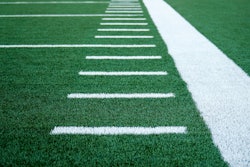Copyright 2014 Southeastern Newspapers Corporation
All Rights Reserved
When San Francisco Giants All-Star catcher Buster Posey was severely injured during a home plate collision in 2011, those who had been speaking out against such collisions only grew louder.
Posey returned from ligament damage and a broken bone to win the 2012 National League MVP, but collisions continued around the game. With concussions in focus throughout sports, Major League Baseball's rules committee has decided it's time for change.
New York Mets general manager Sandy Alderson, chairman of the rules committee, announced during the winter meetings on Dec. 11 that the major leagues intend to ban home plate collisions by 2015. Wording of the rules change will be presented to owners today for approval. If owners and the players union both agree to the changes, they could go into effect by this season.
The proposed changes determine that catchers can't block home plate, and runners can't target catchers. Exact language of the ruling is subject to final determination. Umpires' calls on the ruling would be reviewable in the major leagues.
"My major concern would be enforcing the rule that the catcher isn't allowed to block the plate without the ball," CBS Sports baseball writer Matt Snyder said. "Considering that rule is already in place, I'm wondering why they didn't just say they are going to make it a point of emphasis to strictly enforce the no-block rule."
Eric Krupa, president of the South Atlantic League, which includes the Augusta GreenJackets, said the rules change would also go into effect in the minor leagues. However, minor league umpires would not have the advantage of instant replay.
If there are different ways to interpret the rule, and it's not a blanket rule that bans all forms of collisions, there could be confusion and arguing, Snyder said.
"If the catcher does have the ball, the runner should be required to either slide around him or just take his medicine and accept the out, just like every other base," Snyder said. "But what if the ball and the player arrive at the exact same time and the catcher is blocking the plate? This is the situation that needs to be sorted out."
Responses to the prosposed changes are mixed, but many major league managers are on board, led by Giants skipper Bruce Bochy, who watched Posey's injury from the dugout.
St. Louis Cardinals manager Mike Matheny spoke during the winter meetings about the impact of concussions on his life, in a time when the injury is a concern in all sports. MLB recently estimated that about 50 percent of all concussions are related to collisions.
"I think it's good for the game," said Clayton Miller, a senior catcher at Armstrong Atlantic State and former Lakeside standout. "At first, I felt collisions are part of the game. But after reading some things, I saw where the impact of injuries is pretty severe. I think it's a good rule."
Miller plays by an NCAA rule similar to the proposed one. It states that "the runner may not attempt to dislodge the ball from the fielder. Contact above the waist shall be judged by the umpire as an attempt by the runner to dislodge the ball."
Miller said blocking home plate is a catcher's first instinct regardless of the rule, but the transition for pro catchers to let runners slide should come easily.
"It's 100 percent a natural reaction to block the plate," he said. "But I think it would be an easy transition. Knowing runners have to slide, it makes it easier to get in front and apply the tag."
Reach David Lee at (706) 823-3216
Terms and Conditions Privacy Policy



































